Jack Shainman Gallery is thrilled to announce Regardez-moi, an exhibition of photographs by the
Malian photographer Malick Sidibé. The exhibition, the title of which translates to Look at Me, marks
the gallery's latest celebration of Sidibé’s unparalleled ability to capture the heartbeat of Bamako, Mali
following the country’s liberation from colonial rule in 1960.
Featuring a vibrant selection of photographs — some of which have never before been exhibited — this
presentation invites viewers into the bustling parties, joyous gatherings, and tender moments that defined
the transformative era of a young nation relishing to establish its own national identity. In today’s cultural
climate, where visibility and representation hold immense weight, Sidibé’s work and legacy remain as
significant as ever.
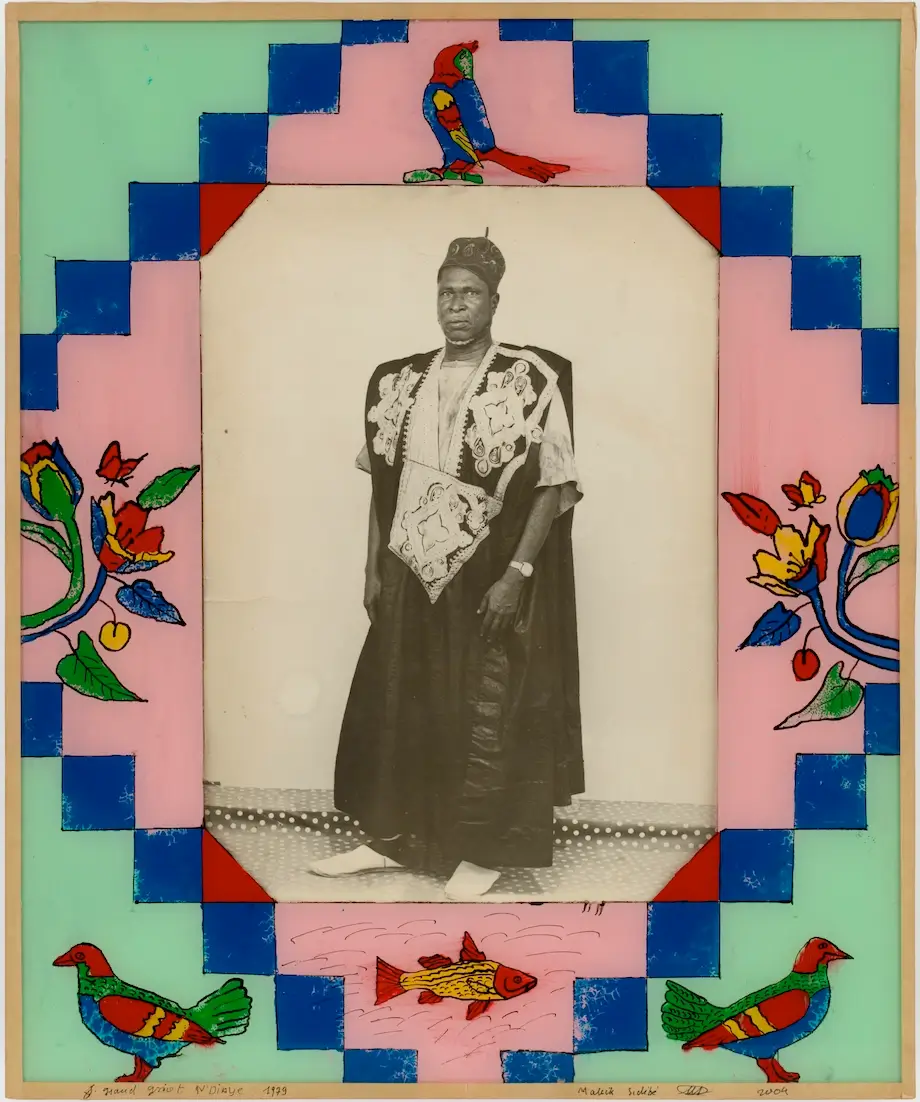
Grand griot N'Diaye, 1979/2004 © Malick Sidibé. Courtesy of the Estate of Malick Sidibé and Jack Shainman Gallery, New York. Photo: Dan Bradica Studio
Presented in conjunction with this exhibition is the publication of Painted Frames, a monograph by Loose
Joints, and the first exploration of Sidibé’s synergistic painted frame photographs. In these works, Sidibe
collaborated with local Malian artists to blend his iconic photography with the traditional West African art
of reverse-glass painting. Regardez-moi presents a selection of these painted frames; reaffirming the
sanctity of African photography as a medium of memory and identity. The publication also features an
essay by writer, independent researcher, and collector-archivist Amy Sall, in which she makes a case for
the continued and ever-expanding importance of Sidibé’s oeuvre:
“Malick Sidibé was witness to, and preserver of, a nascent, burgeoning postcolonial
society in which a new modernity was being constructed by way of transcultural osmosis.
From his studio to the soirées, and even to the banks of the Niger River, Sidibé and his
camera were at the center of it all. He was not only chronicling Malian history and culture,
but making pivotal contributions to it…. The night clubs, living rooms, and courtyards he
photographed were spaces of freedom and community. Sidibé’s oeuvre reflects dialectic
expressions of being because he captured his subjects as their imagined and authentic
selves. From his widely recognized Nuit de Noël (Christmas Eve, Happy Club) (1963) to
his series Vues de dos, the framed images carry the same undercurrents of power and
rebellion, tenderness and joy that flow throughout Sidibé’s entire archive.”
Regardez-moi underscores Sidibé’s role as a pioneer who sculpted the visual identity of the African
diaspora, offering a window into a Malian nation that boldly joined a global youth movement. His
photographs transcend their historical context, speaking to contemporary dialogues about identity,
agency, and the power of being seen. Sidibé's photographs don’t just freeze time, they transform these
scenes into vibrant stages where his subjects — young couples excited to be married, or older men or
women reclaiming their freedom of expression — assert their presence and identity. In Dansez le Twist
(1963-2010), Sidibé captures a young man and a woman in a state of joy while dancing the twist, an
American rock ‘n’ roll dance that became a global cultural phenomenon from 1959 to the early 1960s,
which was known for its simple yet lively steps that encouraged freedom of movement and expression. By
providing his subjects with ways to be seen and celebrated, Sidibé’s lens offers a powerful counterpoint to
our tech-filtered world, reminding viewers of the raw, unscripted joy of human connection. One of Sidibé
most celebrated series, Vues de Dos — with examples from the series held in the collections of numerous
museums such as the Getty Museum, The National Gallery of Art, as well as the Metropolitan Museum of
Art — provides viewers with a deeper understanding of the photographer’s curatorial eye, depicting
women in his studio with their bare backs to the camera against a signature backdrop of striped walls.
Sidibé’s photography serves as both a reflector and a loudspeaker, magnifying the vibrant, intimate
essence of Bamako’s people in the wake of gaining independence from French colonial rule. The works
capture a liberated people that resonates with a contemporary urgency now more than ever.
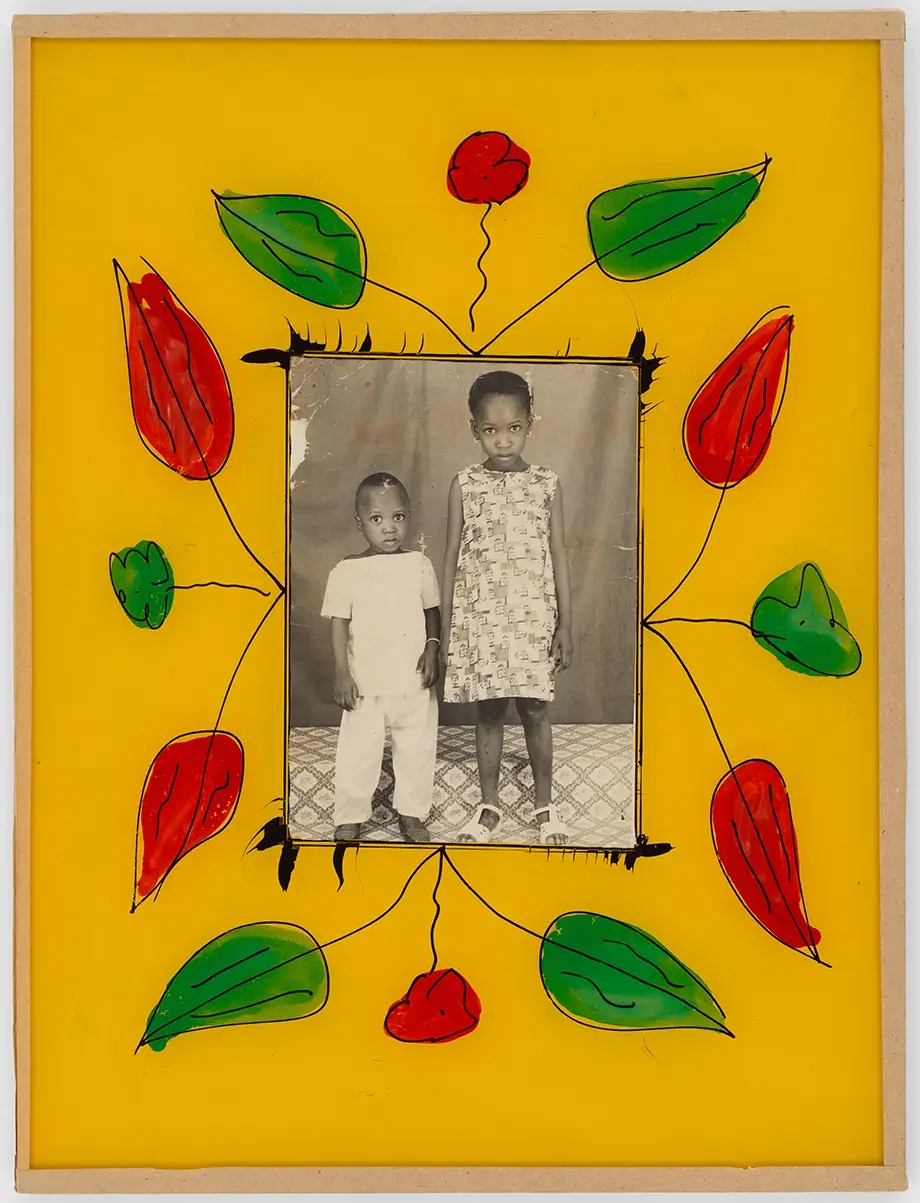
Untitled, 1964-2004© Malick Sidibé. Courtesy of the Estate of Malick Sidibé and Jack Shainman Gallery, New York. Photo: Dan Bradica Studio
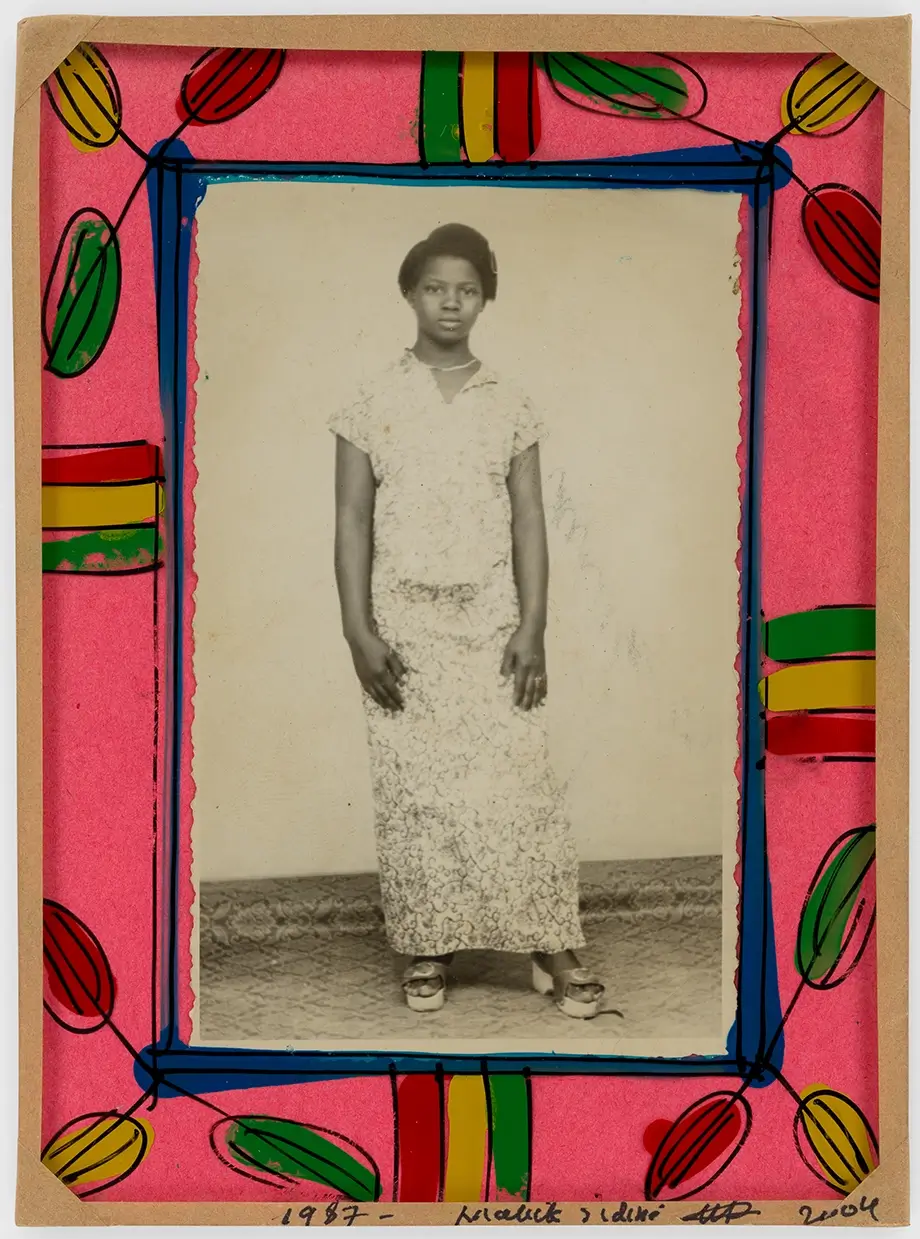
Untitled, 1987/2004 © Malick Sidibé. Courtesy of the Estate of Malick Sidibé and Jack Shainman Gallery, New York. Photo: Dan Bradica Studio
Malick Sidibé (b. 1935, Soloba, Mali; d. 2016, Bamako, Mali) was a photographer known for his black and
white images chronicling the exuberant lives and culture—often of youth—in his native Bamako, Mali.
Much of Sidibé’s work documented a transitional moment as Mali gained its independence, transforming
from a French colony steeped in tradition to an independent country looking toward the West, and Sidibé
played a pivotal role in sculpting the fresh, global appearance of the African diaspora.
This political expression often took shape through individual and collective presentation, such as fashion,
music, and dance – something made palpable by Sidibé’s rhythmic compositions. Often capturing his
subjects in the midst of ceremonial action or in joyous moments of nightlife, Sidibé built the narrative of a
specific time and space that empowered a culture to dictate their own stories. There is a distinct sense of
chronicle felt in the movement of Sidibé’s subjects, who boldly occupy both the photograph’s frame and
their recently decolonized nation’s public and leisure spaces. Beyond his candid shots, Sidibé ran a
formal portrait studio with a deliberately dramatic décor as a backdrop. In order to capture his sitters’
characters and lives, he orchestrated them into relaxed positions encouraging them to bring along
beloved personal objects, like a new motorcycle or a James Brown record. It was through his portraiture
that Sidibé documented the changing fashions and aspirations of generations in Bamako.
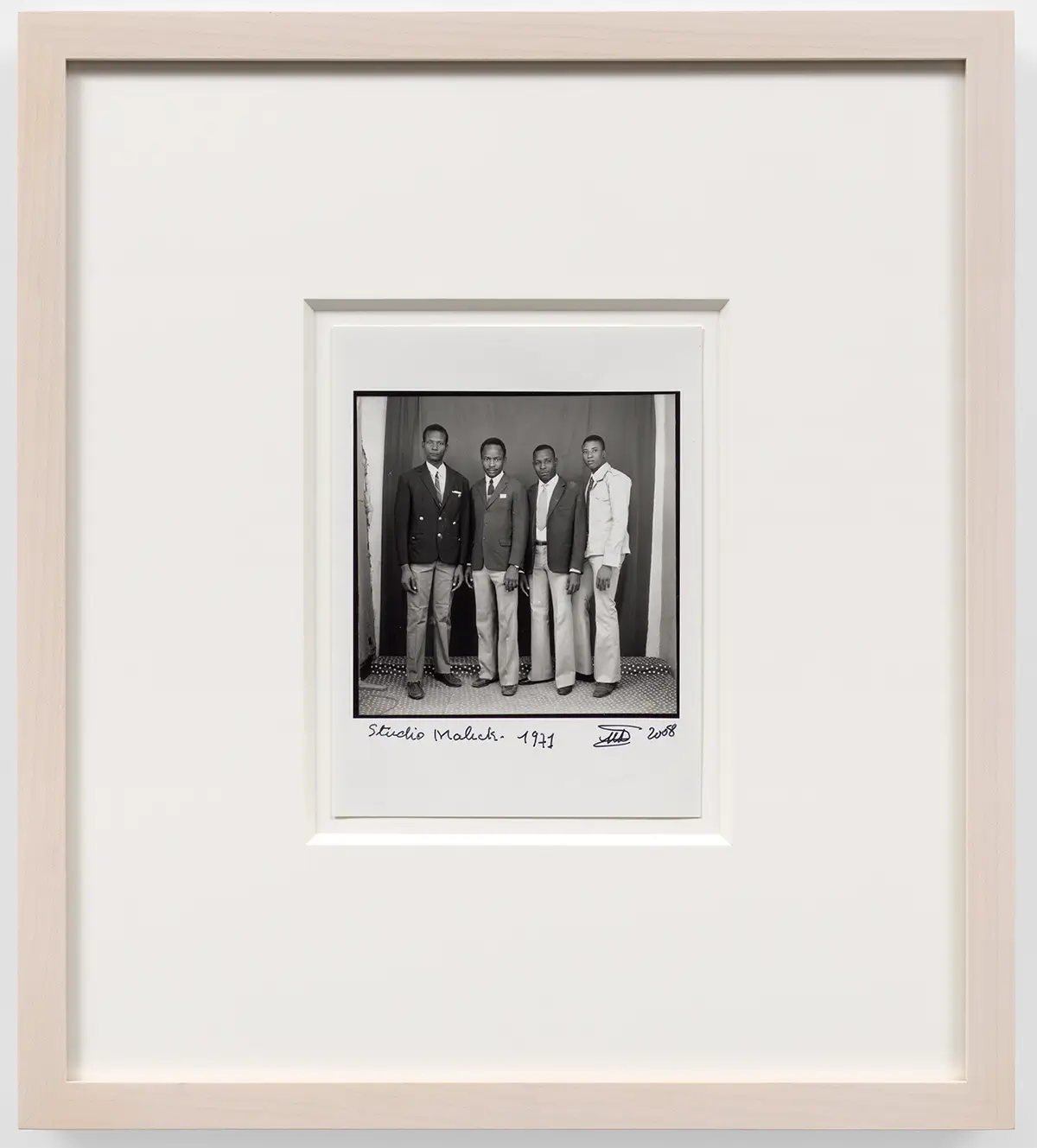
Studio Malick, 1971/2008 © Malick Sidibé. Courtesy of the Estate of Malick Sidibé and Jack Shainman Gallery, New York. Photo: Dan Bradica Studio
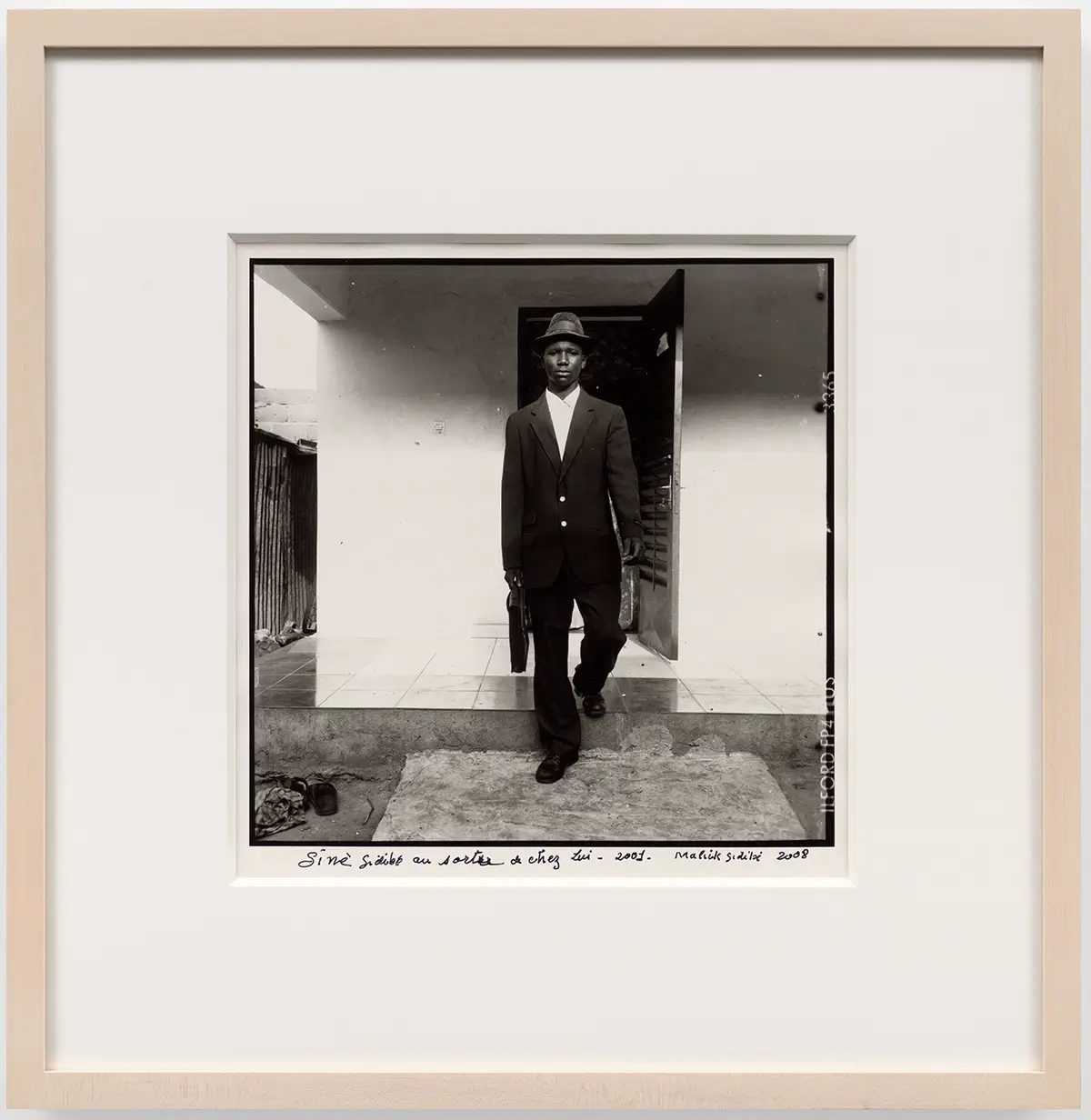
Sinè Sidibé au sortir de chez lui, 2001-2008 © Malick Sidibé. Courtesy of the Estate of Malick Sidibé and Jack Shainman Gallery, New York. Photo: Dan Bradica Studio
Jack Shainman Gallery has been dedicated from its inception to championing artists who have achieved
mastery of their creative disciplines and are among the most compelling and influential contributors to
culture today. For nearly four decades, the Gallery has earned a reputation for introducing international
artists to American audiences and for developing young and mid-career artists who have gone on to gain
worldwide acclaim. The gallery has presented the first New York exhibitions of artists Nick Cave, Hayv
Kahraman, Kerry James Marshall, Meleko Mokgosi, Richard Mosse, Toyin Ojih Odutola, Hank Willis
Thomas and Lynette Yiadom-Boakye, among many others. Today, Jack Shainman Gallery is celebrated
for its multicultural roster of emerging and established artists and estates who engage in the social and
cultural issues of their time.
The Gallery was founded in 1984 in Washington, D.C. by Jack Shainman and Claude Simard (1956-
2014). Soon after opening, the Gallery relocated to New York City, first in the East Village before moving
to Soho and finally, in 1997, to its current location at 513 West 20th Street in Chelsea. In 2013, the
Gallery opened two additional exhibition spaces, one in Chelsea at 524 West 24th Street, which operated
until 2022, and a second in a converted 30,000 square foot building in Kinderhook, NY known as The
School, which continues today. The gallery's newest flagship location in Tribeca at 46 Lafayette Street
opened in January 2025.
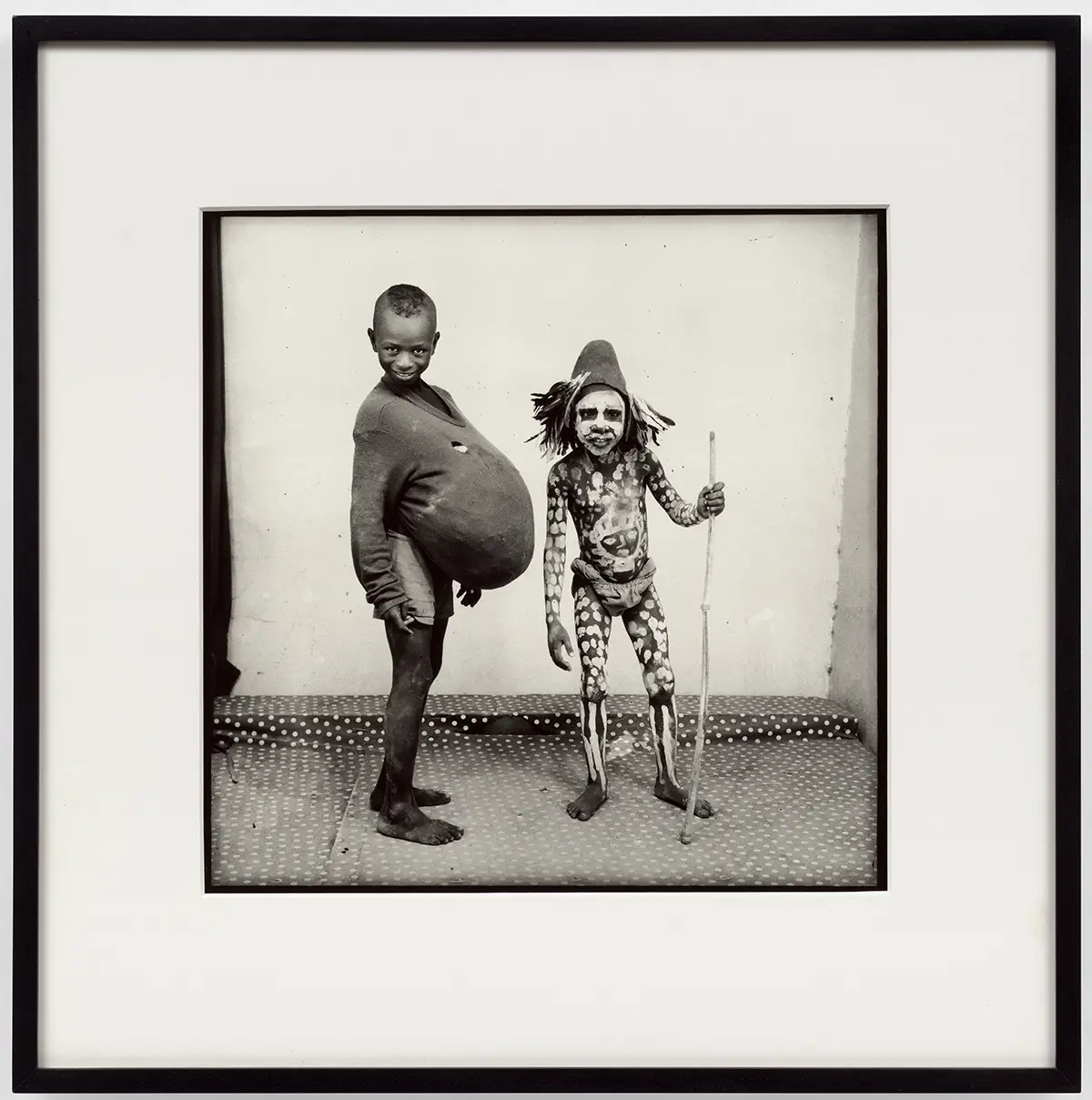
Yokuro, 1970/2006 © Malick Sidibé. Courtesy of the Estate of Malick Sidibé and Jack Shainman Gallery, New York. Photo: Dan Bradica Studio
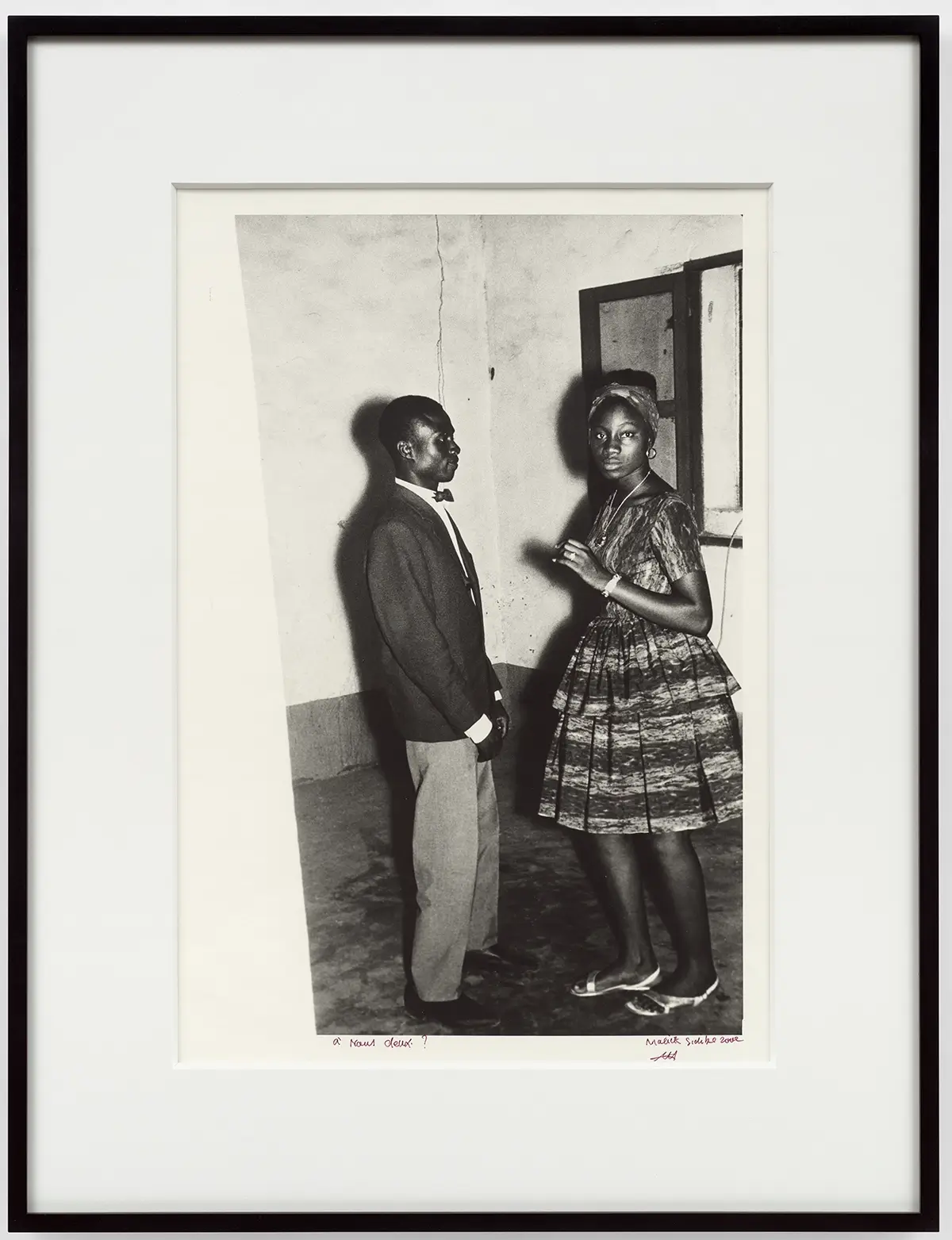
à nous deux? 2002 © Malick Sidibé. Courtesy of the Estate of Malick Sidibé and Jack Shainman Gallery, New York. Photo: Dan Bradica Studio








